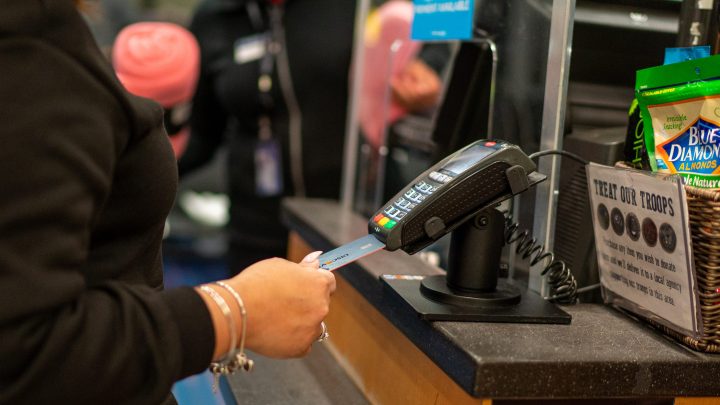
Why is credit card debt rising again?

We learned recently that the overall U.S. economy continued to grow at a strong rate at the end of last year. Part of that growth was fueled by consumer spending, which rose .7% in December, according to the Commerce Department.
Meanwhile, separate data from the Federal Reserve shows that over the last year, consumers have been charging more of that spending to their credit cards. Is that a concern for the overall economy?
Back in 2020 and 2021, credit card debt fell below its pre-pandemic level.
Kathy Bostjancic, chief economist at Nationwide, said even though credit card debt has been rising ever since, it’s not all bad news.
“The recovery you saw in credit card usage, at least through the end of 2022, was really just getting back to that previous trend,” she said.
But Bostjancic said at some point last year, credit card debt started moving beyond recovery mode, in large part because the excess savings people built up during the pandemic have largely been drawn down.
“And consumers needed to rely more on credit cards to be able to fund their purchases,” she said.
Another reason credit card debt has been rising is because of the strong job market.
That’s because people with jobs feel comfortable spending money on their credit cards, said Liz Ann Sonders, chief investment strategist at Charles Schwab — a Marketplace underwriter.
“It’s confidence in the labor markets, whether it’s their own jobs or just in general the labor market,” she said.
That said, credit card delinquency rates have been rising this year, according to the Federal Reserve Bank of New York. That’s especially true among people with lower incomes and multiple types of debt.
“When you add auto debt or student loan debt into the mix, it’s just taking a much bigger bite out of whatever income is coming in, in order to service that debt,” Sonders said.
Delinquency rates aren’t necessarily a huge problem right now, said Jennifer Lee at BMO Capital Markets. That’s because unemployment is still low and wages have continued to rise.
“As long as we continue to see that rising steadily, that will be good support for the overall, the broader American consumer,” she said.
But credit card debt could become a bigger concern if the labor market starts to weaken, said Sonders at Charles Schwab.
“If you start to see cracks there, I think you could connect the dots probably pretty quickly to, if not some sort of collapse in consumption or retail sales, maybe a little bit more frugality,” she said.
And she said people might focus more on paying down their credit card debt instead of piling on more of it.
There’s a lot happening in the world. Through it all, Marketplace is here for you.
You rely on Marketplace to break down the world’s events and tell you how it affects you in a fact-based, approachable way. We rely on your financial support to keep making that possible.
Your donation today powers the independent journalism that you rely on. For just $5/month, you can help sustain Marketplace so we can keep reporting on the things that matter to you.

















